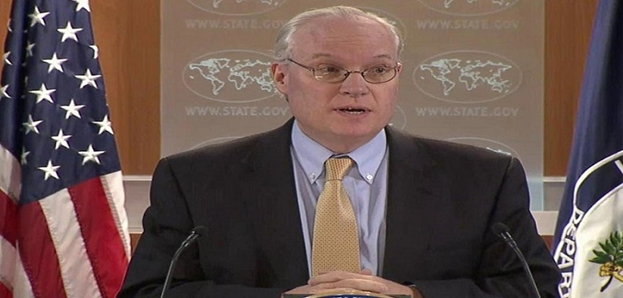
The US envoy to Yemen says ‘maximalist’ demands of Houthis were behind hindering the renewal of the truce in the war-torn country.
Tim Lenderking, the US Special Envoy to Yemen, said Wednesday that the Houthis’ “maximalist demands” had been behind hindering UN efforts to renew a six-month truce in the country that ended in October.
Lenderking made his comment during a hearing on Yemen’s civil war before the US House of Representatives’ Foreign Affairs Committee, where the content of hearing was published on the Twitter account of the US Embassy in Yemen.
“Yemen is currently experiencing the longest period of calm since the war began eight years ago,” the envoy explained. “Not only has this calm brought tangible relief to millions of Yemenis, it has also created a unique opportunity for a peace process.”
“The situation remains fragile, however, particularly as we have witnessed Houthi backtracking on their commitments, introduction of maximalist demands, and – most concerningly – a series of recent attacks threatening international maritime shipping.”
With respect to the failure to extend the truce, Lenderking said, “The last-minute Houthi demand that the Yemeni Government divert its limited oil export revenues to pay the salaries of active Houthi combatants – even as the Houthis refused to commit to a ceasefire – prevented the UN from securing a new truce agreement between the parties in October.”
It was not possible to obtain immediate comment from the Houthis on what the US envoy said. However, recently, the movement launched attacks on three oil ports — Al-Daba, Al-Nashima and Qena — in the provinces of Hadramout and Shabwa in eastern Yemen, after the failure to extend the truce.
The Yemeni war began after the Houthis took control of the capital, Sana’a, and several provinces at the end of 2014, with the support of the forces of former President Ali Abdullah Saleh. He was killed in 2017 in confrontations with the group following the end of their alliance.
The conflict has escalated since March 2015, when an Arab military coalition led by Saudi Arabia intervened to support the legitimate government forces against the Iran-backed Houthis.
Hunger in Yemen
US Agency for International Development (USAID) Assistant Administrator for humanitarian assistance, Sarah Charles, has emphasised to US lawmakers that Yemen historically relied heavily on wheat imports from Ukraine and Russia, and said the continuation of the imports is a critical lifeline for Yemenis.
“The first US-supported vessel transporting wheat from Ukraine arrived at the port of Hodeida on 14 October,” she told a House of Representatives Foreign Affairs subcommittee. “This shipment will feed 2.1 million people and additional grain vessels arriving later this month.”
US Special Envoy for Yemen, Timothy Lenderking, said Yemen is at a “critical moment”.

“We must preserve the positive momentum and gains made since April,” he said. “This includes condemning recent Houthi attacks and increasing our calls for a Yemeni-led inclusive political process.”
He said a series of recent attacks by Houthis threatening international maritime shipping was “worrying”.
Last month, days before its scheduled expiration, the landmark grain deal signed in Istanbul in July by Turkiye, the UN, Russia and Ukraine, was extended for another 120 days, beginning 19 November. Except for a brief hiatus, it has enabled food shipments to the world ever since.
Yemen’s civil war began in September 2014 when Houthi rebels captured much of the country, including the capital, Sana’a. A military coalition led by Saudi Arabia entered the war in early 2015 to restore the government to power.
The eight-year conflict has created one of the worst humanitarian crises in the world, with millions risking starvation.



